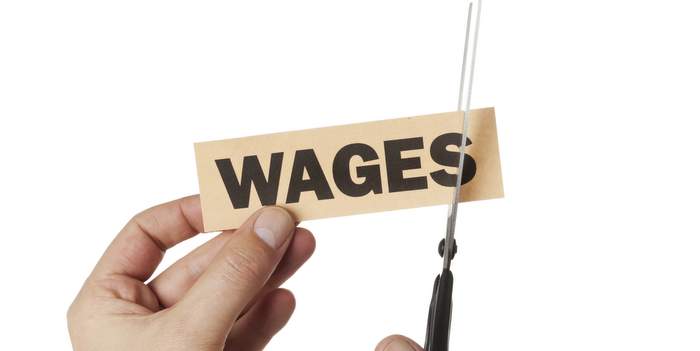[ad_1]
A report this week shows wage theft, defined as workers paid an effective hourly rate below the mandatory minimum wage, has skyrocketed for service workers during the pandemic – and it’s actually worse this year that in 2020, the heart of the closure.
“With the onset of the COVID-19 pandemic in 2020, thousands of service workers have reported experiencing high levels of hostility and harassment for the enforcement of COVID-19 security measures, while also coping with a decrease in tips. These conditions can be directly attributed to the persistence of the lower wage, which remains only at $ 2.13 an hour at the federal level, â€says One Fair Wage, a national non-profit organization that advocates on behalf of workers services in the report “No Rights, Low Salaries, No Service: How increased violations of workers’ rights in 2021, coupled with high harassment and low wages and tips, pushed workers out of the service sector . ”
Report documents growing cases of wage theft and sexual harassment faced by tipping service workers during the pandemic – something common CBB Contributor Julie Rhodes highlighted in her Beer, Bros and Business series.
A key point on the importance of this: Since government investigations of employers are rare, workers are often responsible for enforcing their own labor protections. Laws generally require workers to come forward and report violations, either through complaints or lawsuits in state or federal court. This system is particularly difficult for low-wage workers, who are more likely than workers in general to report wage theft or workplace violations. Women, people of color and immigrant workers are much more likely to report experiencing wage theft from their employers – largely due to their high concentration in minimum wage and below wage jobs minimum.
“Restaurant workers are among the many essential workers whose hard work has helped keep America strong throughout the pandemic,†US Secretary of Labor Marty Walsh said in a webinar that revealed the results. . “The duty of the US Department of Labor is to protect their rights and to ensure that employers understand their responsibilities under the law. This event will help educate these workers on how they can ensure that they receive all of their hard earned wages. “
Report conclusions
In general, more than a third (34%) of workers say they have suffered more violations of their rights in 2021, the second year of the pandemic, compared to 2020.
It is estimated that wage theft affects more than 2.4 million workers each year, costing them $ 8 billion in minimum wage violations. Previous estimates suggest that wage theft is particularly common in the restaurant industry, with 84% of restaurants surveyed having some type of minimum wage violation.
More than a third (35%) of tip workers say their tips and extra wages have not raised them to their state’s minimum wage. Almost a third (32%) say that this violation of their rights occurred more in 2021 than in 2020.
Some violations have affected men more than women; almost half (47%) of tip workers report not being paid for “an hour and a half†when they work overtime – women were 10% more likely to report not being paid for overtime.
Overall, workers report that the drop in tips and the increase in sexual harassment and customer hostility experienced by tipping workers worsened in 2021, even more than in 2020.
Three-quarters (75%) of tip workers say their tips have declined further this year and more than half (54%) report an increase in hostility and harassment related to the application of COVID-safety protocols. 19. More than one in five (21%) said they were more likely in 2021 to receive fewer tips because of their race, gender or sexual orientation.
All of these factors have contributed to over half (54%) of all workers reporting leaving the industry. Almost 8 in 10 workers (78%) say they will only stay if they receive a decent full salary plus tips.
One Fair Wage will also teach service workers how they can deal with suspected cases of wage theft and sexual harassment in the workplace, including knowing their rights to an hourly minimum wage, to keep tips and to be compensated for having worked more. 40 hours per week.
[ad_2]

